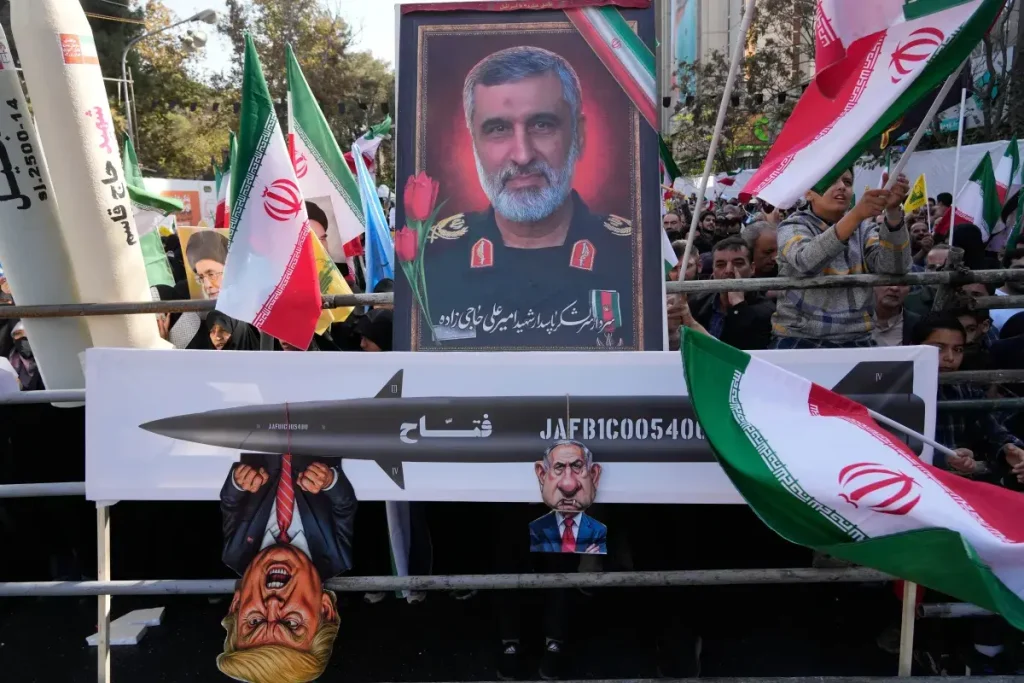Iran’s Foreign Minister Reaffirms Missile Program Stance Amid Rising Tensions
In a defiant statement that underscores the ongoing tensions between Iran and the West, Foreign Minister Abbas Araghchi has made it clear that Iran’s defensive capabilities are non-negotiable. Speaking to the Iranian Students News Agency, Araghchi emphasized that Iran’s missile capabilities have actually strengthened since the brief but intense 12-day conflict in June, when Israel struck Iranian missile and nuclear infrastructure while U.S. forces targeted three key nuclear facilities. His message to Washington was unambiguous: any future negotiations would be strictly limited to nuclear issues, with regional activities and missile programs remaining off the table. “The missile and regional issues have always been brought up, and our position has always been clear: if any talks are to take place, they will be limited solely to the nuclear issue,” Araghchi stated, directly challenging the broader agenda that Western powers have sought to establish in diplomatic engagements with Tehran.
The conflicting narratives surrounding the June conflict highlight the deep divide in how both sides perceive the current balance of power. While President Trump has characterized Iran as a significantly weakened adversary, claiming U.S. and Israeli military action “obliterated” Iran’s nuclear capabilities, Araghchi presents an entirely different picture. The Iranian Foreign Minister asserted that Israel’s defense systems proved inadequate against Iranian missiles during the conflict, and that Iran ultimately forced an “unconditional ceasefire” on its adversaries. This stands in stark contrast to Israeli Prime Minister Benjamin Netanyahu’s claim that a large portion of Iran’s ballistic missile arsenal was destroyed in the early hours of the aerial attacks. What remains undisputed is that the conflict saw Iran fire hundreds of ballistic missiles into Israel and attack America’s largest Middle Eastern military base in Qatar, demonstrating both capability and willingness to escalate despite international pressure.
Western intelligence assessments paint a concerning picture of Iran’s missile program, which appears to be not only substantial but growing in both size and sophistication. Secretary of State Marco Rubio has described the program as an “unacceptable risk,” reflecting widespread concern among U.S. officials who view Iran’s missile activities as a destabilizing force in the region. These concerns have intensified following reports that Iran received approximately 2,000 tons of sodium perchlorate—a missile fuel precursor potentially sufficient for around 500 ballistic missiles—from China in late September. This transfer occurred despite UN sanctions specifically banning arms sales and missile activity related to Iran, highlighting the challenges in enforcing international restrictions against a country that has increasingly looked to alternative partnerships to circumvent Western pressure.
In response to mounting international isolation, Iran has strategically pivoted toward Russia and China for diplomatic and economic support. This alignment has become especially pronounced following the June conflict and the reimposition of UN sanctions after the expiration of the Joint Comprehensive Plan of Action (JCPOA) in October. During a recent phone call with Chinese counterpart Wang Yi, Araghchi specifically praised China’s position in declaring the UN “snapback” mechanism illegal, emphasizing the importance of the “constructive cooperation” between Beijing, Tehran, and Moscow in countering what Iran views as Western unilateralism. This trilateral coordination was particularly evident as Iran consulted with both nations ahead of an International Atomic Energy Agency (IAEA) board meeting in Vienna focused on Iran’s nuclear program. The IAEA continues to press Tehran for full cooperation on monitoring and verification activities, reflecting ongoing international concerns about potential military dimensions of Iran’s nuclear development.
The rhetoric from both Iranian and American leaders suggests fundamentally different assessments of the current diplomatic landscape. Araghchi’s statements reflect Iran’s determination to project strength, particularly emphasizing self-reliance in military capabilities: “The Islamic Republic’s approach was to rely on domestically produced military equipment, and the result was that those who initially demanded unconditional surrender ended up accepting an unconditional ceasefire on the 12th day… International relations are based on power. We must be strong, and the armed forces have gone above and beyond in this regard. Our missile power today is far greater than during the 12-day war.” This assertion of growing military capability directly contradicts the narrative presented by President Trump, who claimed in a recent CBS interview that “Iran wants to make a deal” despite their public posturing. The stark contrast between these positions illustrates the significant trust deficit and competing strategic objectives that continue to hinder meaningful diplomatic progress.
With both sides firmly entrenched in their positions, the prospects for constructive U.S.-Iran engagement appear limited in the near term. Iran continues to insist that its defensive capabilities remain non-negotiable while maintaining that it does not seek nuclear weapons—a claim viewed skeptically by Western powers. Meanwhile, the United States and its allies remain focused on addressing what they perceive as the full spectrum of threats posed by Iran, including its missile program and regional activities. This fundamental disagreement about the scope of any potential negotiations presents a significant obstacle to diplomatic progress. As Iran strengthens its relationships with China and Russia, and the West maintains its pressure campaign through sanctions and other means, the geopolitical landscape continues to evolve in ways that could either eventually create new openings for dialogue or further entrench the existing impasse. What remains clear is that the complex dynamics between Iran and the West will continue to be a defining feature of Middle Eastern security for the foreseeable future.


